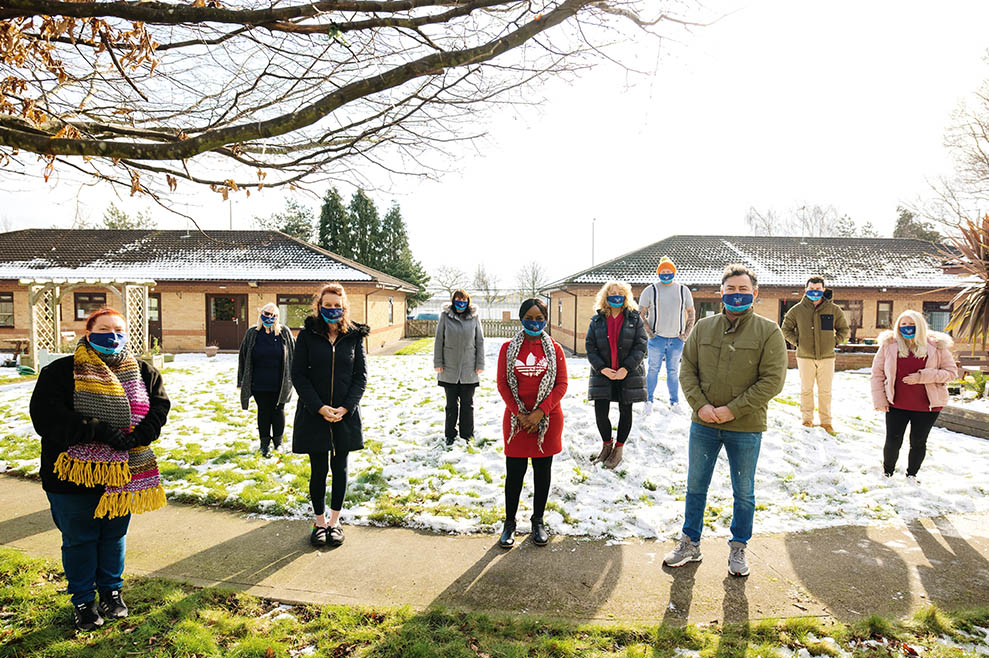Job roles in social care
There are a variety of different job roles in social care; it just depends on you and what you’re interested in, who you want to work with and where you want to work.
You can click on the jobs below to find out more about each role and the skills, qualifications and experience you may need.

Job role descriptions
These roles directly involve working with people who need social care and support. Roles such as the following:
Activities worker
You’ll organise social activities for people who need care and support, including trips out, entertainment and supporting people to take part.
Care/support worker
You’ll support people with all aspects of their day to day living, including social and physical activities, personal care, mobility, independence and meal times. This could be in a larger residential service or in a small independent living house with either a small number of people or a person who lives alone.
Personal assistant
You’ll support an individual to live as independently as possible, usually in their own home or in the community.
Rehabilitation worker
You’ll support people to live independently, often following an illness or accident, and help them access support with housing, finance, social activities and life skills such as cooking or budgeting.
Shared lives carer
You’ll open up your home and family life to include someone who needs care and support. They might come and live with you all the time or be a daytime visitor for a few hours a week.
Advocacy worker
You’ll support vulnerable people to have their voice heard and ensure that their best interests are taken into consideration when decisions are being made about their lives.
These roles involve a level of managerial responsibility where you could be responsible for managing a small team, or even be the Chief Executive of an organisation.
Team leader or supervisor
You will lead or supervise a team of social care workers to ensure they provide high quality care and support.
Manager
Depending on your level, you’ll be responsible for the day to day running of the organisation, ensuring it meets standards and managing budgets and contracts.
Deputy manager or team manager
You’ll lead and manage the care team, helping them to deliver high standards across the organisation. You’ll also play an important role in supporting the manager of the service.
Specialist coordinator, such as dementia or end of life care coordinator
You’ll specialise in one area of care such as dementia or end of life care and take responsibility for training staff and putting policies in place.
You’ll connect people with non-medical support in the community to improve their wellbeing and tackle social isolation.
Welfare rights officer
You’ll advise people around matters relating to legislation such as housing benefits, disability living allowances, employment benefits and rent support.
Employment advisor
You’ll support people who need care and support to find and maintain employment.
Administration roles including finance, HR and marketing
You’ll carry out administration tasks to support the organisation in finance, HR and marketing.
Trainer or assessor
You’ll design and deliver learning and development sessions to improve the knowledge and skills of staff.
These roles mean you have to be registered with a regulated body to practice. They require relevant qualifications which might include a degree or diploma. This includes roles such as:
Social worker
You’ll offer counselling and advocacy to individuals and families, and intervene where vulnerable people need safeguarding.
Occupational therapist
You’ll work with people with physical, mental or social disabilities to help do everyday activities such as with physical rehabilitation or equipment for daily living.
Nurse (including nursing associate)
You’ll perform clinical tasks to people in a nursing home or in the community.
Complementary therapist
You’ll provide complementary therapies such as reflexology, massage and aromatherapy to people who may be experiencing emotional distress, pain or psychological issues.
Counsellor
You’ll provide emotional support to help people overcome challenges for example bereavement, living with a long term condition or drug or alcohol addiction.